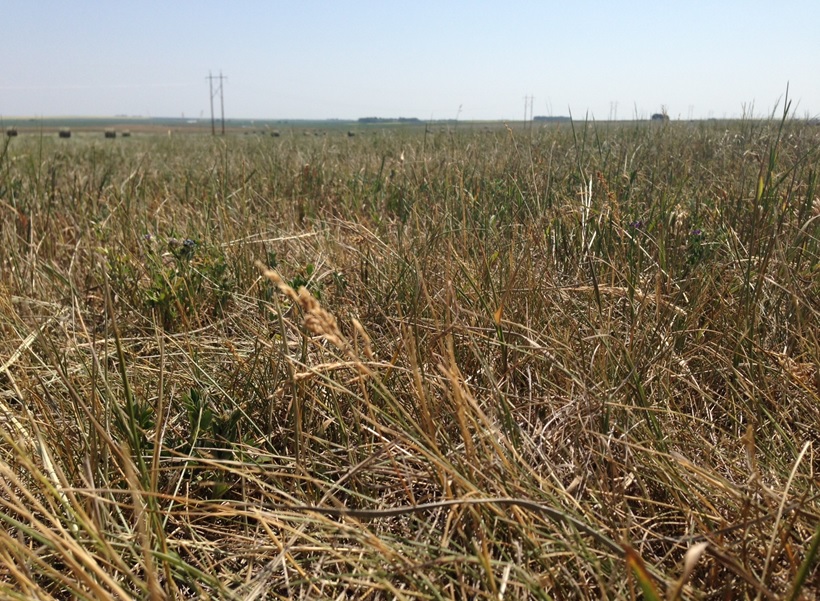CALGARY – A new study highlights the importance of irrigation for Alberta agriculture as widespread drought is having a harsh impact on crop yields in Western Canada.

The study, commissioned by the Alberta Irrigation Projects Association, found that every dollar invested by the province in irrigation generated three dollars in added revenue to Alberta and Canada and urges governments to fight extreme droughts the same way it does other climate-related disasters.
READ MORE: Alberta Energy Regulator restricts river water use by oil sector, cites drought
Investing in irrigation in Alberta between 2000 and 2011 translated into about $1.3 billion in annual revenue for the provincial and federal governments, the study found.
It also determined that irrigated lands contribute about 20 per cent of Alberta’s agricultural GDP, but take up only 4.7 per cent of the cultivated land.
Erwin Braun, chairman of the association, said the study shows that Alberta farmers are using water more efficiently with modern irrigation – producing more food with less water.

Get breaking National news
READ MORE: Alberta drought spurs wasp influx; here’s how to get rid of them
- B.C. judge rules plaintiffs did not do enough to identify hit-and-run driver
- B.C. customers find packages discarded like ‘garbage’ when they are marked as delivered
- B.C. family outraged at man with Stage-4 cancer’s 14-hour ER wait, discharge
- 16-year-old international student dies after North Vancouver collision
But he added the government should be investing more in irrigation and water storage to help deal with future droughts as climate change brings more extreme weather to the province.
“Clearly, climate change will have a big impact on the province as we deal with more extreme events,” he said. “The government has moved ahead with flood mitigation projects and we believe this study shows the same kind of effort can and should be made around drought mitigation.”
He added that farmers in irrigated parts of the province have been able to weather an especially dry year in the Prairies that is expected to take overall crop yields down 25 to 30 per cent below the five-year average.
READ MORE: Agrium profits up despite Western Canada drought
Carl Chomistek, a farmer and board member of the Eastern Irrigation District, says irrigation has been critical to his successful crops this year, with almost nothing growing on his non-irrigated land.
“There’s nothing there, it’s not even worth harvesting where you’re not irrigating,” said Chomistek.
He said he’s started to invest in drip irrigation to make his water use more efficient, since nothing is lost to evaporation.
Alberta farmers have invested over a billion dollars in the past 20 years to improve efficiencies in water use, said Braun.
According to the study, roughly 690,000 hectares of land is irrigated in Alberta, making up 70 per cent of Canada’s total irrigated lands.
The study was funded by the provincial and federal governments under the Growing Forward 2 program.
READ MORE: Edmonton area seeing fewer mosquitoes due to hot and dry weather





Comments